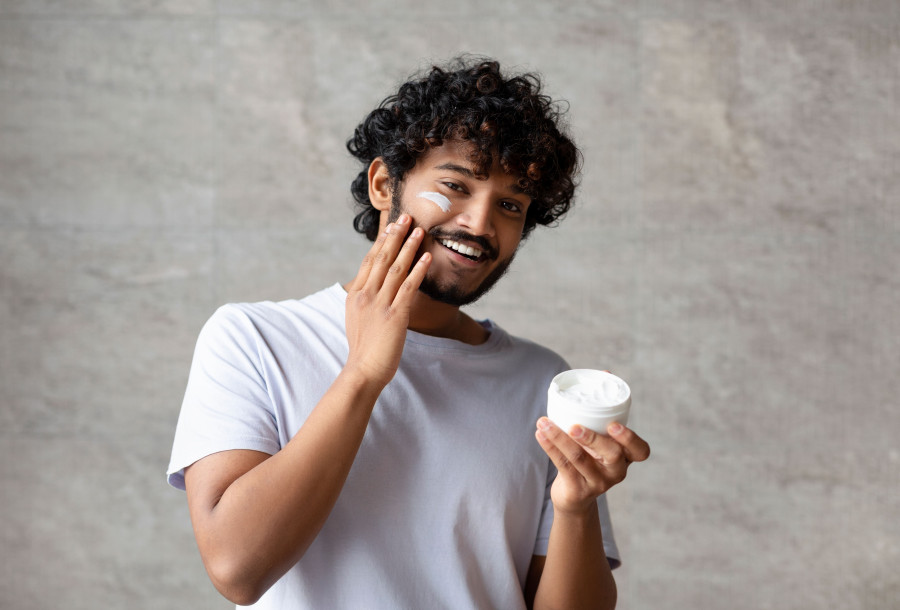Life & Style
Skincare isn’t gendered. It’s about your skin’s needs
Dr Prativa Shrestha explains how men’s skincare routines are not fundamentally different from women’s.
Rishika Dhakal
Dermatologist Dr Prativa Shrestha explains how men’s skincare routines are not fundamentally different from women’s, addressing common misconceptions and essential practices.
What are some common misconceptions about men’s skincare?
The common misconception regarding men’s skincare is that men require products made exclusively for them. However, depending on the needs of their particular skin types, men and women can use the same products.
How does men’s skin differ from women’s, and how should this affect their skincare routine?
There are notable physiological differences between men’s and women’s skin. Men’s skin is comparably oily, prone to pimples, and has bigger pores because they have high testosterone. In addition to this, men’s skin is considered to be 20–25 percent thicker than women's skin. Also, they tend to have deep wrinkles due to increased muscle mass.
As a dermatologist, I prioritise basic skin concerns like dryness, oiliness, pigmentation, acne susceptibility, wrinkles, and other conditions when recommending a skincare regimen. Gender plays a minimal role in these considerations.
For a morning regimen, I recommend using a thin-consistency product like a serum, gel, or lotion over a cream. This choice takes into account the ease of spreading, the presence of men's facial hair, and the skin's tendency to become oily throughout the day.
Can you suggest a basic daily skincare routine for men?
A basic skincare routine for men should cater to the specific needs of their skin, which is typically oilier, thicker, and more prone to large pores. Start the skincare routine with a mild foaming cleanser, followed by an antioxidant serum like vitamin C or niacinamide, a moisturising lotion, and finish with a broad-spectrum sunscreen of at least SPF 50. Additionally, remember to reapply sunscreen every 2-3 hours and take precautions to avoid direct sunlight.
What skincare products are more suited for men?
Rather than focusing on gender, the underlying skin issues and an individual’s goal on what they want to achieve should be considered while helping to choose a product. Someone with pimples may choose salicylic acid and niacinamide-based products.
Likewise, for fine lines, one may choose peptides and retinol. If an individual wants to protect their skin from sun damage, they can choose a CEferulic or tranexamic acid-based product.
What are some common skin issues experienced by men?
These days, pigmentation issues like melasma are increasingly common in men as well. Therefore, I recommend treatments such as chemical peels and depigmenting mesotherapy. Laser hair removal is also popular among men for areas like their arms or chests, as well as for shaping their beards.
For clogged pores, oily skin, and active acne, a combination of HydraFacial with a chemical peel is highly effective.
To address hair thinning, injectable platelet-rich fibrin with a hair-revitalising meso solution is an excellent procedure. Similarly, microneedling radiofrequency is a great option for minimising pores, reducing wrinkles, and improving acne scars.
How can we change the perception of skin care as a gendered activity?
To change the perception that skincare is a gendered activity, it's crucial to emphasise the fundamental role of skin in overall health and well-being. As the largest organ of our body, the skin provides a vital defence against microbial and chemical hazards, and helps regulate body temperature.
Taking care of your skin is as important as caring for your teeth, eyes, or any other organ. Everyone desires to look and feel good, and the quality of your skin plays a significant role in achieving this. Good skincare practices can enhance confidence and self-esteem, which are universally important, regardless of gender.
Therefore, taking care of your skin is not about gender, but about maintaining health and well-being.




 18.37°C Kathmandu
18.37°C Kathmandu










